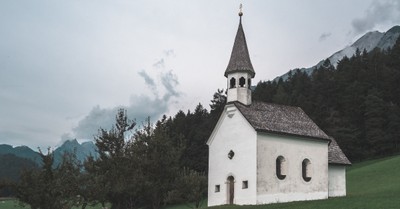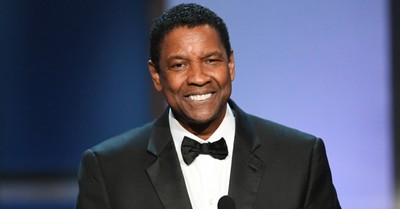A Church Distributed: A New Look at an Old Command
- Eva Marie Everson Contributing Writer
- Published Jun 13, 2005

I can’t tell you how often I’m asked, “Eva Marie Marie, where do you attend church?” When I answer, “Northland, A Church Distributed in Longwood, Florida” I’m given a puzzled look. The distributed church is a new concept. Or, is it? Maybe this is the way it was always meant to be, rather than church buildings housing groups of distinct people—peculiar by any stretch of the word—holding on to church memberships as though they were to country clubs.
Among Jesus’ parting words were the following: Therefore go and make disciples of all nations… (Matthew 28:19). Look at those first two words again. “Therefore go.” Maybe the Lord never meant for us to just sit in one spot…or one pew…and never branch out.
But, what is the distributed church? I took some time recently to meet with Sr. Pastor Dr. Joel Hunter and Vernon Rainwater, Pastor of Worship and Distributed Ministries of Northland, A Church Distributed to talk about this…new thing. This…going. Wanna listen in?
Eva Marie: Joel, can you give us a brief history of Northland and how it went from Northland Community Church to the distributed church.
Dr. Joel Hunter: I’m glad to be doing this with Vernon because this picture of the distributed church isn’t about any one person or perspective. The key to the distributed church is that you always need a complimentary perspective in order to have the whole perspective.
My memories are real simple. The church had been in existence about 12 years when I got here in 1995. It had just divided and there were maybe a couple hundred people, just hurting people, you know. It was a friendly split, but it was still a split and they were wondering a few months if they should even continue the church. They prayed about it, thinking, well, maybe God still has a purpose for us. So we got here in this little dumpy roller skating rink and basically it didn’t grow much ‘cause we had some healing to do. Then we got this vision that God would—through the next ten years—would focus us on one theme a year. Whether it be purpose or love or faith or wholeness or whatever—just one theme a year so we could squeeze it into our character. During that time the church exploded. I mean it just went from I think at that time we were at maybe 400 or maybe 500 and then we went to close to 6000 in attendance during that time. In 1998 we got this hint that God was doing something new. Instead of being a community church and just building up our congregation, God was calling us to define ourselves more by what was happening in relationships outside the building than in relationships inside the building.
We didn’t want to be the traditional community church anymore. We wanted re-center the focus from the congregation that meets inside a building to all of those Christians while they were in their fields—their ministries—every day, and reshape the church on behalf of their ministry rather than trying to get them into the church to do a church program.
Joel: But, no one could have even heard the vision had it not been for the worship [service]. We’ve got this worship that…I could get up and cough and people would hear from God. I say that to say that if it’s something from God, your spirits have to be open to what God is saying. It’s something that He births in the lives of people while I’m just talking, and it comes out different than I imagined it because He’s working in the lives of people.
Eva Marie: Absolutely.
Vernon: The unique thing about it, whether you look at the worship as a whole, or the preaching—and it is the ideal. Joel preaches from the ideal, not the quiet desperation that many people feel, not the--you know--lament over “this is who we are and wouldn’t it be great if we could change.” These are all realities and they’re a part of the culture and the fabric of our world, it’s a fallen world, and we—everybody—
Eva Marie: And some people are called to that ministry.
Vernon: Absolutely.
Eva Marie: And it works for them.
Vernon: It works for them. It’s not a Pollyanna approach--you know--that we just try to pretend like it’s not going on. We’re well aware of it. Faced it this morning when I got out of bed, it’s a fallen world. But Joel has always preached from…the best picture of it for me in Scripture when John gets the revelation and Jesus says to him, “Come up here and I’ll show you what must take place after this.”
Well, it’s always kinda how I’ve heard Joel’s sermons. It is that sense of “come up here and I’ll show you what is to take place.” I think that was the growing sense that we had throughout those ten years as we looked at those topics.
Eva Marie: I came in on the topic of faith. I remember the first sermon I ever heard Joel preach. It had to do with when you, Joel, went for a run one day, went to the pool to lay down, and a cat came and got up on your chest. You remember that?
Joel (laughing): I do.
Eva Marie: My husband and I were just cracking up laughing, and when we left my husband said, “I think we have finally found our church home.” Because of this worship thing, and I do want to go back to that, I want to go back to praise and worship because when I speak to people I say there’s two things you gotta know about Northland. 1) There’s a worship team that just won’t quit, and 2) we’ve got a pastor who is able to draw in people. And, Joel, they do listen to you, and you encourage us to come up. Like you were just saying, come up here. When I speak to women’s groups, I reiterate that when we pray, God doesn’t come down to us; we go up to Him, and we gotta learn to get into that throne room. You know, instead of huddling down here in the masses.
Joel: That’s exactly right.
Eva Marie: Joel, you mentioned Billy Sunday in a sermon not too long ago. One of his quotes is “Let’s quit fiddling with religion and do something to bring the world to Christ.” I thought that was very appropriate of the church distributed.
Joel: First of all, everything in the distributed church starts with who we believe God is, starts with the attributes of God. Our God is a singular and plural one, that is, we worship a God who is a relationship, who left his home territory to go out in order to be connected with the world, and who extended his presence in a locality.
We need to link to people who are very different than we are, who are not a part of our congregation but are a part of what will make us complete. Different cultures. Different nations. Different parts of our family in different countries, because that’s the image of Revelation 7:9 and so if we don’t want to wait till heaven to get there, we have to link differences now.



















